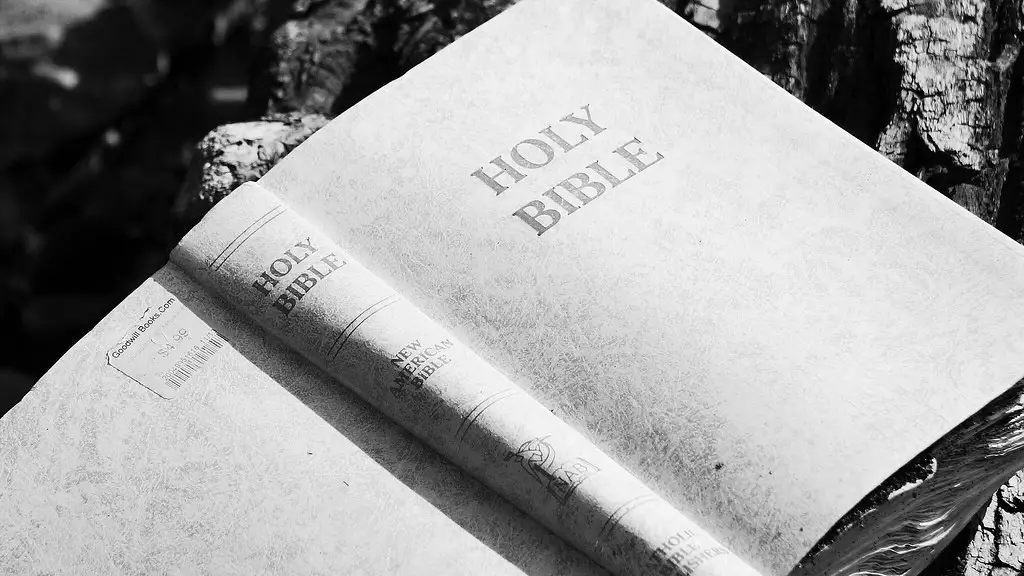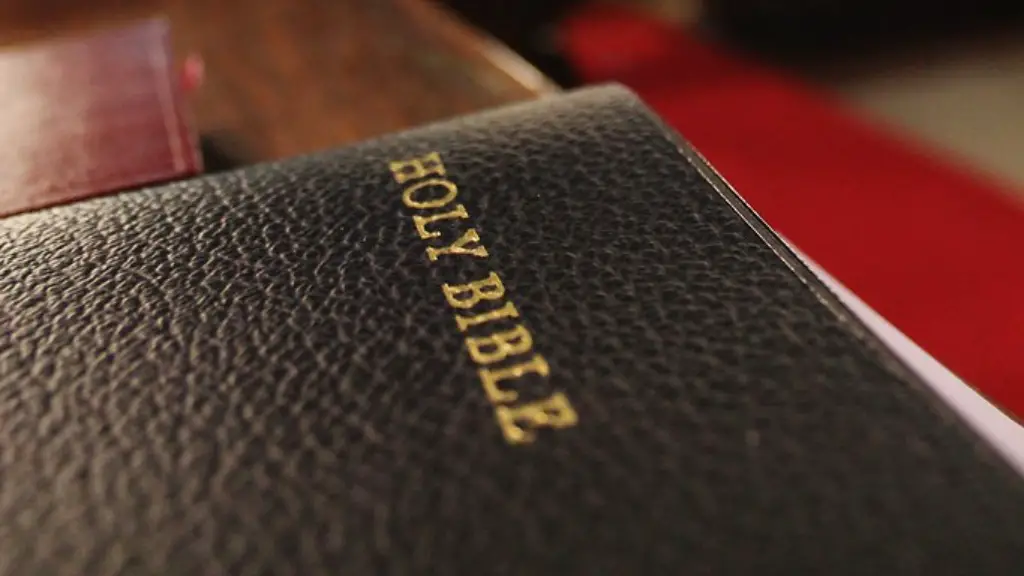Locusts are mentioned several times in the Bible and are generally presented as pests that spread destruction and cause famine. Locusts were regarded as a great source of alarm and concern in the ancient world, and were part of God’s judgment on people’s sin.
In the Old Testament, locusts are mentioned over 30 times, mostly in the books of Exodus, Leviticus, and Deuteronomy. The Bible describes locusts as an agricultural pest, an object of God’s punishment, a symbol of destruction and judgment, and a metaphor for armies.
For example, locusts are mentioned in Exodus 10:12–15 as one of the 10 plagues God inflicted on Egypt prior to the exodus. In this account, locusts consume all the crops and vegetation in Egypt, leaving nothing but desolation. Similarly, Joel 2:25 mentions locusts as a sign of God’s judgment, saying that “the terraces are destroyed and the crops laid waste, for the grain is destroyed; the new wine fails, the oil languishes.”
In other passages, the Bible uses locusts to symbolize armies. For instance, Jeremiah 51:14 says: “The LORD of hosts has sworn by himself: ‘Surely I will fill you with men, as with locusts, and they shall raise a loud cry against you.’” Similarly, in Revelation 9:3–10, locusts symbolize the demonic hordes of the Abyss, led by the angel Abaddon.
In addition to using locusts as objects of God’s judgment and symbols of destruction, the Bible also mentions the food value of locusts. The Old Testament states that locusts are an acceptable food item according to Jewish dietary laws. In Deuteronomy 14:22–23, God commands the Israelites to enjoy locusts, saying “these you may eat: the locust of any kind, the bald locust of any kind, the grasshopper of any kind…” For this reason, some ancient Jewish communities ate locusts as part of their daily diet.
In short, the Bible mentions locusts in various contexts and for various purposes. Although most often locusts are presented as an object of God’s judgment and a symbol of destruction, they are also used as a metaphor for armies and even as a food item.
Locust – Symbol Of Transformation
In some biblical references, locusts behave as underdogs who ultimately overcome extreme difficulty and transform into something greater as a sign of hope. The biblical book of Esther offers one such narrative. When the Jews in Persia faced total annihilation by King Ahasuerus, Esther’s cousin Mordecai encouraged her to risk her life to intercede and save her people. In this story, Mordecai uses the swarming locust to encourage and inspire Esther. He described the locust as facing extraordinary peril and emerging on the other side, telling Esther, “who knows whether you have come to the kingdom for such a time as this?” In this story, the locust is used as a symbol of transformation from difficult circumstances to success and hope.
Implications Of Locusts In The Bible
The locust’s multifaceted presence in the Bible has significant implications for contemporary readers. On the one hand, the Bible uses locusts to symbolize judgement and destruction, teaching us the consequences of sin and God’s vengeance. On the other hand, the Bible also describes locusts as a sign of hope, demonstrating the transformative power of faith and divine intervention.
Both themes are still relevant to us today. Locusts symbolize our own struggles and the consequences of disobeying God. At the same time, they also offer a message of hope and transformation whenever we face difficult circumstances and need divine help. Whether we read the Bible literally or symbolically, locusts are a powerful reminder of the importance of faith and obedience, even in the most challenging of times.
Kinds Of Locusts In The Bible
The Bible mentions at least two types of locusts – the bald locust (Lev 11:22) and the ‘honey locust’ (Deut 32:13). The bald locust is thought to be the common locust, a species native to Africa, the Middle East and Asia. The ‘honey locust’ is actually not a locust at all but rather a type of pod-like fruit. Together, these two species of locusts embody the duality of the locust’s symbolic function in the Bible – as a bringer of judgment and destruction as well as a source of sustenance and salvation.
Evidence Of Locusts In Other Ancient Texts
Locusts have been an important part of the cultural and religious histories of many ancient civilizations. In addition to the Bible, locusts appear in ancient religious texts such as the Qur’an and the Sanskrit Vedas, as well as in mythology from Greek and Roman culture. For example, locusts symbolized chaos and destruction in the Greek myth of the Locusts of Erinyes. In all these ancient texts, the locust’s symbolic importance is the same: it is used to illustrate the power of divine judgment and the transformative power of divine intervention.
Plagues Of Locusts In Ancient Times
Historical evidence reveals that massive plagues of locusts have occurred throughout the world since ancient times. In ancient Egypt, plagues of locusts made their way down the Nile Valley, devastating crops and leaving famine in their wake. Similarly, agricultural records in Mesopotamia, China, and India all describe large-scale locust outbreaks, which resulted in agricultural losses and social upheaval. It is no surprise, then, that locusts were used to symbolize chaos and destruction in cultures around the world.
Locust Plague In Modern Times
Reports of locust outbreaks still occur today, in places like Africa, the Middle East, and even Australia. Like their ancient counterparts, these plagues can cause tremendous devastation to crops and result in famine. Ecologists are currently attempting to develop new strategies to address the problem of locust outbreaks, such as using bacterial sprays and insecticides. It remains to be seen whether these strategies will be successful in controlling the population of locusts.
Conclusion
In conclusion, it is clear that locusts play an important role in the Bible and other ancient texts. Locusts symbolize God’s judgment and his power to transform difficult situations into hope and salvation. Locusts are also notorious for their plagues in ancient and modern times, causing famine and social upheaval. Although we cannot control the destructive power of locusts, we can learn from their presence in the Bible and use it as an opportunity to witness the power of faith and to recognize the hope that can come in the midst of desperate times.



